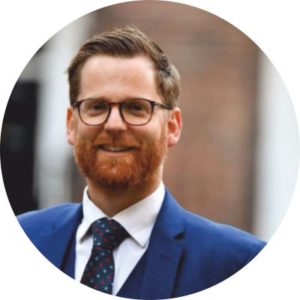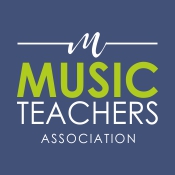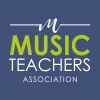
Tim Garrard is MTA Partnerships Lead, Director of Music at Westminster School and a trustee of Musical Boroughs Trust.
Twitter: @tim_garrard
[PDF article links are below and also in the right hand column or at the bottom on mobile devices]
Partnerships Foreword from Partnerships Part One: December 2020 Issue of Ensemble Magazine
With a little help from my friends
One weekend in November witnessed the passing of Rabbi Lord Jonathan Sacks against the backdrop of an election viewed by many as one in which love conquered hate. Lord Sacks once said that ‘when we restore social covenant, we defeat politics of anger and re-create politics of hope’. There will yet be bumps in the road, but there was something very fitting to be found in Lord Sacks’ words on the day that Vice President Biden promised to work to heal a divided country.
And here in the UK, the nationwide reaction to Marcus Rashford’s extraordinary determination to end child poverty, prompted Downing Street to make a U-turn and provide free school meals during the Christmas holidays.
This is what humans are capable of. When enough good people decide there is a better way, barriers can be broken.
It’s all too much
One of the more enjoyable moments of any calendar year is the MTA Conference, and, whilst the virus deprived us of the wonderful event that Mark Wilderspin had prepared for us in 2020 at St Paul’s School, Bromsgrove’s excellent conference in 2019 shone a light on the current state of Music Education in the UK. Speakers including Deborah Annetts (ISM Chief Executive) and Bridget Whyte (Music Mark Chief Executive) told us the sobering truth, that the situation is dire.
The State of the Nation Report (February 2019), compiled by the All-Parliamentary Group for Music Education, the University of Sussex and the Incorporated Society of Musicians, set the scene: most primary school music curriculum is delivered by non-music specialists; in secondary schools, on average, 1.5 music teachers are responsible for whole school provision; music hubs are seriously underfunded and limited in their offer by bureaucratic postcode boundaries.
For years now, we have fought hard to nullify the threat to Music A Level brought about by the EBacc, advocates of STEM, or the Russell Group’s ‘facilitating subjects’. Only recently was Music initial teacher training funding withdrawn by the Department for Education.
But it’s not all doom and gloom! Ofsted’s new updated inspection framework focuses on curriculum as opposed to outcomes, and the Russell Group of universities has dropped its list of facilitating subjects. There is an opportunity to change the direction of travel.
This is where we come in.
Of one thing I have no doubt, that MTA wants to deliver opportunities and access for all, allowing every child access to life-changing experiences. This is why we are so passionate about exploring ways in which we can work together to provide giant networks of collaborative opportunity.
Come together
Aside from our corporate members, the Music Teachers’ Association is made up of EYFS specialists, primary or secondary specialists, classroom practitioners and instrumental and singing teachers, working in both the state and private sectors. We come from all over the UK and far beyond. We specialise in Boulanger, B.B. King, Bach, Bebop, balafons, and breakdowns (of the pop music variety). We teach young people with various types of disability and special educational needs. We work with beginners, virtuosos, and everything in between. Some of us have access to significant physical and digital resources, and others have none.
But despite our differing circumstances, through my interactions with music teachers one thing is clear: we share so many common values. It is MTA’s quest to honour its strapline as an association run ‘by teachers, for teachers’, for ALL teachers, for the benefit of ALL children and young people.
As we evolve as an association we will continue to get better at delivering this, and our engagement thus far with UK Music Masters’ inclusion and diversity strategy tool, I’M IN, has highlighted how we absolutely must encourage and champion diversity, strive always for inclusion, and constantly review, reflect and refine so as to ensure equity.
Of one thing I have no doubt, that MTA wants to deliver opportunities and access for all, allowing every child access to life-changing experiences.
This is why we are so passionate about exploring ways in which we can work together to provide giant networks of collaborative opportunity.
Revolution
These two Partnerships issues, Part One (December) and Part Two (February) are full of examples of best practice which, at its core, has to be child-focused as opposed to institution-centric.
With the best of intentions, there is a danger that much good work is happening in silos, and our challenge moving forward must be to open up all lines of communication in order to consider just what is possible.
Met with this Government’s silence in response to his initial rallying call, Marcus Rashford demanded more, and organisations the length and breadth of the country responded unanimously with unflinching support for the one cause.
We have similar misgivings about governmental support or lack thereof in the world of Music Education.
But why can’t we strive to achieve a similar U-turn?
What would happen if all schools and music hubs, all youth music organisations and youth music charities, and all professional ensembles and venues came together for the sake of the next generation?
What would happen if MTA worked in partnership with ACSL, NAHT and HMC in order to persuade all headteachers of the power of Music? What would happen if MTA, Music Mark and ISM could together create a system whereby everywhere, in this country, local schools and hubs and venues and music organisations were interconnected in a way that left no child behind.
The pages of both Part One and March’s Part Two contain the views of heads and music teachers of both primary and secondary and state and independent. They highlight the power of partnership for music hubs and organisations such as the Benedetti Foundation and Gabrieli Roar. They detail the work of educational partnership schemes, such as that run by the Diocese of Leeds, and charities like Orchestras For All and Music Masters.
Together, we #candomusic.


